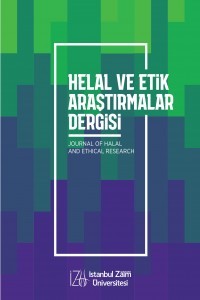
Helal ve Etik Araştırmalar Dergisi
Yazarlar: Malhun FAKIOĞLU, Hüseyin GÜVEN, İ̇zzet ÖZTÜRK
Konular:Gıda Bilimi ve Teknolojisi
Anahtar Kelimeler:Wastewater purification,Reuse dilution ratio,Psychological and religious hesitations,Nature changes in water
Özet: Nearly 97% of water in the world is saline which cannot be used directly for potable and non-potable purposes. The remaining 3% is the only potable water source but it is distributed unevenly worldwide. Due to the climate change it is expected that river flows will decrease by 20-30% in the future and using advanced treated wastewater as a new water source will be much more important. However, there are some significant psychological, social and religious hesitations regarding the direct use of advanced treated wastewaters as drinking and utility water, even though they have the same water quality as tap water. There are not any solid, consistent and persistent religious aspects regarding the use of reclaimed municipal wastewater for drinking and utility water that is purified from pollutants with respect to reuse area. Feces and urine content of influent wastewater at wastewater treatment plants (WWTPs) is around 1% and pollutant parameters in this fraction (carbon, nitrogen, phosphorus) could be transformed into new products, therefore its nature changes completely. Accordingly, if pollutants, which harm the nature of water, are removed through applying appropriate treatment technologies, there might be no drawbacks in reuse. In this study, it was indicated that pollutants in municipal wastewater can be purified (treated) sufficiently by incorporation of appropriate treatment methods and natural processes in receiving water bodies. The purpose of this article was to discuss the problem when such water bodies are used for water supply, and propose an idea that the purified water can be distributed to a city network following the proper treatment at conventional water treatment plants. Additionally, it was mentioned that why the public has psychological and religious hesitations although there is no drawback to mix purified wastewater with fresh (absolute) water in appropriate dilution ratios (actual water/purified water > 2) according to the scientific quality standards.
Dergi editörleri editör girişini kullanarak sisteme giriş yapabilirler. Editör girişi için tıklayınız.